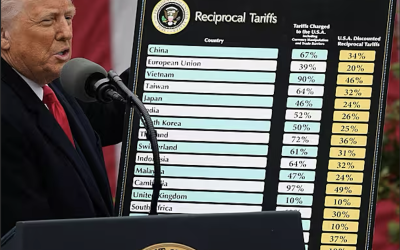For decades, the linear model of battery production—“extract, use, discard”—has dominated the industry. Batteries are designed, used, and discarded, leaving behind a trail of wasted resources and environmental strain. This approach is no longer sustainable. The industry has reached a turning point.
The current linear model doesn’t just deplete resources—it borrows from future generations, creating a debt of waste and resource depletion. However, the circular economy offers a powerful alternative—a vision where resources are reused continuously, and waste is minimized. Imagine a world where 90% of battery materials are recycled, and only 10% are new. This isn’t just a distant possibility—it’s a pathway we are already forging together.
The value definition is shifting. The future of batteries isn’t about being the biggest, strongest, the fastest, or the company that produces the most. It’s about producing the most durable, most recyclable, the most repurposed and yet efficient batteries. Success will belong to the companies that adapt—those that embrace stewardship over ownership, align with sustainability, and redefine how value is created in a circular economy.
Innovation: The Key to Unlocking Circularity
To achieve this vision, innovation must tackle three critical drivers:
- Traceability: Knowing the origin and journey of every material within a battery builds trust and ensures ethical sourcing.
- Optimized Lifespan: By maximizing battery performance and durability, we extend usage and reduce waste.
- High Recyclability: Designing batteries for second and third lives reduces dependency on raw materials and minimizes environmental impact.
These drivers go beyond compliance—they create a blueprint for a sustainable, transparent, and efficient ecosystem. They also reflect a shift in corporate culture, encouraging behaviors that prioritize accountability, durability, and adaptability.
The Digital Battery Passport: A Unified Framework for Change
For those in the industry, the question arises: “We already have tools like traceability and optimization—what’s new here?” The answer lies in integration.
The Digital Battery Passport (DBP) goes beyond isolated tools, offering a unified platform that connects every stage of a battery’s lifecycle. From sourcing to end-of-life recycling, the DBP consolidates critical data into a single framework that enhances transparency, lifecycle efficiency, and regulatory compliance.
With the DBP, companies can:
- Centralize data for seamless reporting and better decision-making.
- Align with global standards, reducing complexity and inefficiencies.
- Unlock new business opportunities, transforming compliance into a competitive advantage.
This is more than a tool—it’s a catalyst for aligning innovation with sustainability and profitability.
Data as the New Currency
In the circular economy, data is the currency that drives accountability, transparency, and value creation. Metrics like traceability, lifecycle optimization, and circularity credits are no longer optional—they are the foundation of success.
Through the DBP, companies can capture and share the data required to meet regulatory demands, enhance consumer trust, and unlock new market opportunities. This data-centric approach ensures that every stage of the battery lifecycle is optimized, from raw material sourcing to recycling.
This isn’t just about compliance—it’s about making compliance work for you. Data doesn’t just support your business; it drives it.
Shifting from New to Renewed
The transition from “new” to “renewed” is reshaping how value is defined in the battery industry. This shift prioritizes durability, transparency, and circularity.
- Recyclable products will dominate: Batteries designed for multiple lifecycles will become the norm.
- Durability will define success: Longer-lasting batteries reduce costs and environmental impact.
- Efficiency will drive decisions: Batteries that perform better while using fewer resources will lead the market.
These changes don’t just benefit the environment—they strengthen companies by building resilience, reducing costs, and fostering stronger relationships across the value chain.
OEMs as Enablers and Catalysts
Economic operators, particularly OEMs, play a pivotal role in this transformation. They act as both:
- Enablers, driving internal value through performance optimization and cost efficiency.
- Catalysts, extending their influence outward to support recyclers, second-life applications, and logistics providers.
By embracing the DBP, OEMs not only adapt to new models but actively shape the future of the battery industry.
A Call to Action
The battery industry is at a crossroads. The question isn’t whether the shift to a circular economy will happen—it’s about how quickly and effectively companies can adapt to lead the way.
The future isn’t about producing the most batteries—it’s about producing the best batteries: the ones that last the most recyclable, repurposed, yet last longest, perform the best, and contribute to a sustainable future.
The time to act is now. The tools are here. The opportunity is undeniable. Let’s shape the future of batteries together.
Learn more about Seraph’s work with the BASE Battery Passport project by viewing this webinar
Follow Seraph on LinkedIn.
Contact us to schedule a discovery call
see our case studies for more information.
About Seraph
Seraph is a global operations and strategy consulting firm, that leads value chain improvements, restructurings, and turnarounds. We unite the disparate roles in operationally intensive businesses to create efficient operations, bridging the divide from concept to production. High-level decision-makers in manufacturing and industrial organizations rely on us to solve complex issues and launch initiatives that ensure success and sustainable change.

This project has received funding from the Horizon Europe Framework Programme (HORIZON) Research and Innovation Actions under grant agreement No 101157200
Visit the BASE website here: https://base-digibattpass.eu/





